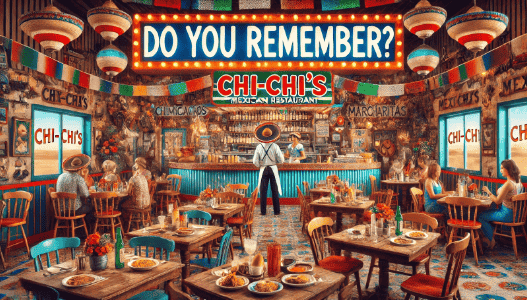Do you remember Chi-Chi’s? If you do, you are probably wondering what happened to them. If you don’t, then take this as a cautionary tale. Chi-Chi’s was a Mexican casual restaurant chain that was all the rage in the 80s and 90s. With more than 200 locations in five countries as well as a supermarket line (which still exists), the future was bright. Until a bad batch of onions.
Things were not going great for the chain when the largest hepatitis A outbreak in American history, with at least four deaths and 660 other victims of illness in the Pittsburgh area, was traced back to green onions at a Chi-Chi’s restaurant. They could have turned things around up until then, but such a prolific and life-changing mistake is nearly unrecoverable.
Why are we bringing this up now? Because what happened with Delta during the recent global CrowdStrike outage, mirrors what happened to Chi-Chi’s. Now, Delta hasn’t caused any deaths, but the outage crisis and how their business failed to get back up and running quickly has had real financial and regulatory ramifications that are going to have long-term effects on their bottom line and reputation. So much so that reports are saying Delta is now suing Microsoft and CrowdStrike.
Delta didn’t create the problem, but it’s certainly their headache. So what do you do when it’s your crisis but not your fault?
The short answer: exactly what you would do if your business had caused it.
You follow your crisis plan to the letter, acting swiftly and communicating with clarity, empathy, and ownership. Yes, ownership. Because even though it’s not your mistake, it’s still your problem.
So, what does this look like? You stay calm, gather information, and assemble your crisis team. You review your crisis plans, adjust your pre-prepared holding statements, and delegate.
To your stakeholders, you communicate the cause of the crisis and the actions being taken to remedy it with absolute transparency. You apologize. You introduce any alternative workarounds or make goods. You provide regular updates, address consumer concerns, and keep your word. Someone will check to make sure you have delivered that hotel voucher as promised.
And by facing the storm head on, you get through it and back to business.
Thought Bubble: there will be reputation-preserving opportunities to clearly state that the business disruption was not directly your doing, but you are responsible for fixing it for your customers. Focus on getting back on track, and easing impact and frustration. The original problem is not your fault. A bad response lands squarely in your lap.
Here is a quick exercise you can run at your next team huddle or monthly all-hands meeting, to help test if your organization is prepared to manage a crisis like this should it land on your doorstep:
Discussion Questions:
- What would you do if this happened to you?
- Would your crisis communications strategy change if the mistake was not yours? How?
- What could your business do today to help prepare for a crisis caused by a third party vendor?
Kith facilitates crisis preparedness workshops that will help your company attain the clarity, trust and speed you need to respond confidently – no dithering! – to any crisis. We’d be happy to have a conversation about how we can help your company be ready to chart an effective course to reputation protection.


